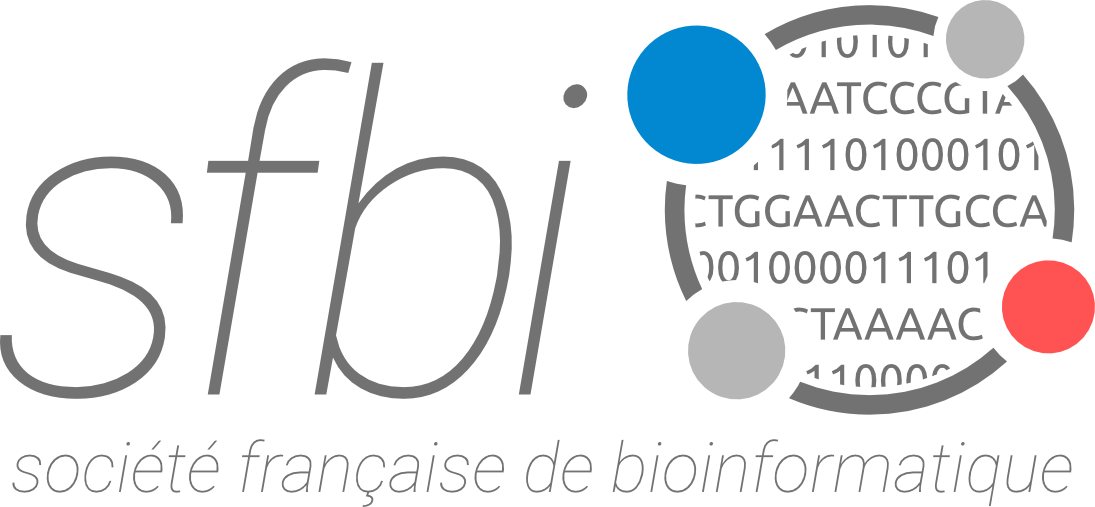Spatial transcriptomics for Cellular and Molecular Classification of Lung Cancer
CDD · Postdoc · 24 mois Bac+8 / Doctorat, Grandes Écoles InforBio (former ARTbio) · Paris (France)
Date de prise de poste : 2 janvier 2025
Mots-Clés
Spatial Transcriptomics, Visium HD, Cancer, RNAseq, TME
Description
Context
We are seeking a postdoctoral researcher in bioinformatics to contribute to an innovative research project focused on the cellular and molecular classification of lung cancer patients using spatial transcriptomics. This project, centered on the use of Visium HD technology and bulk RNAseq, aims to explore new approaches to characterize the tumor microenvironment (TME) and its organization into tertiary lymphoid structures (TLS). The candidate will work in a cutting-edge research environment with a strong applied dimension, and bioinformatic predictions will be validated on a patient cohort.
Supervision and Work Environment
The candidate will benefit from dual mentorship, combining the expertise of the Bioinformatic’s Platform Inforbio (IBPS, Sorbonne Université) and the Inflammation, Complement, and Cancer Team (Centre de Recherche des Cordeliers) supervised by Isabelle Cremer.
Project Description
The composition of the TME plays a crucial role in the prognosis and response to treatments of patients with non-small cell lung cancer. In particular, the presence and organization of immune cells in tertiary lymphoid structures (TLS) within the tumor are associated with better responses to immunotherapy and extended patient survival (Vanhersecke et al., Nature Cancer, 2021; Jacquelot et al., Oncoimmunology Cancer, 2021).
The proposed project is structured around two main objectives:
- Identification of Genetic Markers for TLS: Establishing a clinically useful genetic signature that could predict the presence of TLS using spatial transcriptomic (Visium HD) analysis of 18 tumor samples and RNAseq data on a cohort of 220 patients.
- Characterization of Cellular and Molecular Mechanisms: Exploring the heterogeneity of the TME to better understand the underlying processes of this variability, with the goal of identifying new therapeutic targets.
Desired Profile
- Education: Ph.D. or Master’s degree in bioinformatics with at least 4 years of research experience.
- Technical Skills:
- Experience in scRNAseq analysis and/or spatial transcriptomics.
- Proficiency in Python (preferred) and/or R programming.
- A profile focused on image analysis and machine learning will also be considered.
- Duration: 2 years from February 2025
Qualities Sought
We are looking for a curious, motivated candidate ready to tackle the challenges of an ambitious bioinformatics project in oncology. Prior experience with Visium HD technology is not required, but a strong motivation to explore this data and a desire to contribute to cancer research are essential.
*********************
Contexte
Nous recrutons un postdoctorant en bioinformatique pour contribuer à un projet de recherche innovant, portant sur la classification cellulaire et moléculaire des patients atteints de cancer du poumon grâce à la transcriptomique spatiale. Ce projet, axé sur l'utilisation de la technologie Visium HD et bulk RNAseq, vise à explorer de nouvelles approches pour caractériser le microenvironnement tumoral pulmonaire et son organisation en structures lymphoïdes tertiaires. Le candidat travaillera dans un environnement de recherche de pointe avec une forte dimension appliquée, et les prédictions bioinformatiques seront validées sur une cohorte de patients.
Encadrement et environnement de travail
Le candidat bénéficiera d'un double encadrement associant l’expertise de la plateforme de bioinformatique InforBio (IBPS, Sorbonne Université) et celle de l’équipe de recherche Inflammation, Complément et Cancer (Centre de recherche des Cordeliers) dirigée par Isabelle Cremer.
Description du projet
La composition du TME joue un rôle critique dans le pronostic et la réponse aux traitements des patients atteints de cancer du poumon non à petites cellules. Notamment, la présence et l'organisation des cellules immunitaires en structures lymphoïdes tertiaires (TLS) dans la tumeur sont associées à une meilleure réponse aux traitements immunothérapeutiques et à une survie prolongée des patients (Vanhersecke et al., Nature Cancer, 2021 ; Jacquelot et al., Oncoimmunology Cancer, 2021). Le projet s'articule autour de deux objectifs principaux :
- Identification de marqueurs génétiques pour les TLS : établir une signature génétique exploitable en clinique qui pourrait prédire la présence de TLS en utilisant l’analyse transcriptomique spatiale (Visium HD) de 18 échantillons tumoraux et l’analyse de données de RNAseq sur une cohorte de 220 patients.
- Caractérisation des mécanismes cellulaires et moléculaires : explorer l'hétérogénéité du TME afin de mieux comprendre les processus sous-jacents à cette variabilité.
Profil recherché
- Formation : Doctorat ou Master en bioinformatique avec au moins 4 ans d'expérience en recherche.
- Compétences techniques :
- Expérience en analyse scRNAseq et/ou transcriptomique spatiale.
- Maîtrise de la programmation en Python (préférée) et/ou R.
- Un profil orienté analyse d’images et apprentissage automatique / deep learning sera également considéré.
- Durée : 2 ans, à partir de février 2025
Qualités attendues
Nous recherchons un candidat curieux, motivé et prêt à relever les défis d’un projet ambitieux en bioinformatique appliquée à l’oncologie. Une expérience préalable avec la technologie Visium HD n'est pas indispensable, mais une forte motivation pour explorer ces données et une volonté de contribuer à la recherche contre le cancer sont essentielles.
Candidature
Procédure : Please send your CV + contact details of reference(s)
Date limite : 2 janvier 2025
Contacts
Lorette Noiret & Naïra Naouar
inNOSPAMforbio@sorbonne-universite.fr
Offre publiée le 21 novembre 2024, affichage jusqu'au 2 janvier 2025
